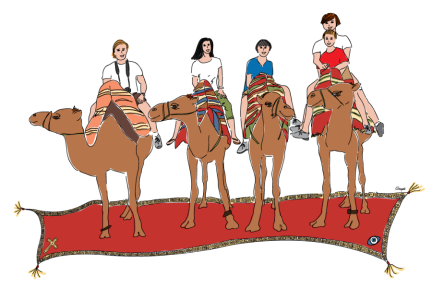I received news today that I never expected to hear. Faithfully, every year or so, I’ve had my heirloom piano tuned for its posterity and longevity. Knowing one day I’d pass the piano on to one of our three sons, we invested in it yearly by having it tuned. She’s the centerpiece of our living room and the heartbeat of our house. She takes up a big space in our living room where a couch could be instead. I realize this sounds dramatic but I’m very nostalgic about our piano.
The piano tuner diligently worked on her but told me at the end of his appointment that he had bad news for me. He told me the piano was soon reaching the end of its life. My heart sank. I was in shock. He said the piano was built in 1942 during a time when quality parts were not available. He admired its unique rolltop feature and the design details of it. Wurlitzer was a brand that was somewhere in the middle back then. They didn’t design again until 1946. I assume that this was because of WWII and all that was going on in the world. I asked him if I should continue to have it tuned and other questions that might give it more longevity. He was honest with me that it would not be worth investing in anymore. My mind raced with so many thoughts as I tried not to cry in front of this man. Denial. I scheduled the appointment during my youngest son’s college Spring Break so he could be here again this year to watch this process. My son was out on a run and I was relieved that I’d have time to gather my thoughts before breaking the news to him.
The kind piano tuner told me there was hardly any life left in the piano. While that’s true, here’s what ELSE I know to be true.
She might not be a top of the line, high quality piano but she represents so much more to me. She’s exactly 80 years old. My grandfather bought her in the 1940’s for his elementary aged only child, my mother. The piano’s sentimental value is priceless. Providing a gift like that during wartime (as an immigrant) for his first generation Greek-American daughter was significant. He even had piano books engraved for her with her name in gold lettering. My siblings and I all learned to play piano on this instrument. Mom and I played songs from the engraved, hardcover piano books each Christmas. My three sons learned to play piano on this piano and we, too, would play piano songs every Christmas. I think it only moved houses one time- from downtown Tulsa to Swan Lake but I’m not sure if it started off in Bristow. My nieces, Goddaughter, and I posed at the piano a few times in pictures I took on self-timer with a tripod.
When the boys returned from college each break time, they played so many songs on her. My cousins played on her during many holidays or parties when we’d have impromptu concerts and singalongs. My 6 year old cousin and I entertained the family one Christmas with carols. When the piano wasn’t being played, she was an excellent piece of furniture displaying favorite items: my camel lamp, a silver pomegranate gift from a dear aunt, a precious ceramic goat that my husband gifted me as a reminder of our time at a farm in Greece, my mother’s hardcover, engraved piano books, Christmas card photos I took of photography clients, and recently, a framed card from a friend.
How could I face that the piano’s life was over?” Depression”. I analyzed the situation with the piano tuner. Do I move her to another part of the living room and place a couch there instead? Do I ask the boys not to play her as much in order to extend her life? The piano tuner replied that that would not help. Do I just let everyone play on her and ignore the declining sound quality? How would I break the news to my siblings? Would they care? Would this just be another family member who was reaching the end of life? I mused that the piano had reached the end of its productive life, like humans. Our youngest son has one more year of college. Was it meant to be that the piano’s life was ending around the time that he’ll graduate and not come home on breaks anymore to strum her keys and learn new songs?
I reached the bargaining point in the steps of what Psychology calls DABDAR- Denial, Anger, Bargaining, Depression, Acceptance, and Recovery. (Technically, I was never angry about this. I skipped that step.) I know exactly what I’ll do. I’ll invite everyone over who ever played on the piano and we’ll have a good-bye concert. We won’t cry because it’s over. ..we’ll smile because it happened. What happened?….All of it--the lessons, the practices, the new discoveries, the singalongs, the parties, the Christmas mornings, the dusting, maintenance, tuning and decor of something so grand. 80 years is a marvelous run. Acceptance. I wonder if my grandfather ever imagined that seven people would learn to play on the piano he proudly bought in the 1940’s. Today, with this news, I’m missing him, my mom, and my sons who have all grown up and away. The piano might not be productive anymore but she sure raised a few generations of us and taught us that music, posture, diligence, and practicing a talent are valuable things to learn in a lifetime. Her mechanics might not work much longer but her legacy is timeless. Recovery.
© Gina Michalopulos Kingsley

I love this story!!
Thank you!